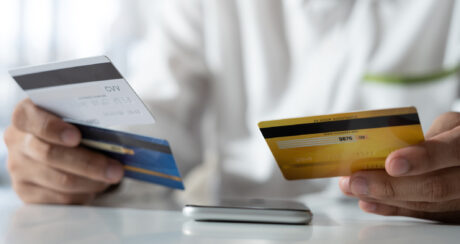Credit cards have a range of benefits, enabling consumers to purchase virtually anything — in the real world and online. Some types of cards also offer rewards and incentives to cardholders who use them responsibly.
However, as the name states, credit cards are a form of credit, and their convenience can come at a considerable cost to consumers. With rising inflation and interest rates, ongoing cost-of-living pressures and stagnant wages, it’s perhaps not surprising that Australians are falling deeper into credit card debt.
Average credit card debt in Australia
In recent years, Australia has experienced a spike in credit card debt due to unprecedented spending. Nationally, monthly credit card purchases hit $34.4 billion in July 2023, according to Reserve Bank of Australia (RBA) data, a 9.6% increase from the same month last year, or $3 billion in cash terms.
As of July 2023, there were over 13.429 million personal and commercial credit and charge card accounts, and the collective debt accruing interest was $18.4 billion.
The Reserve Bank of Australia reported that the average debt accruing interest per personal card was $1,110 in July of this year, similar to 2022 numbers but still concerning. After all, a $1,000 credit card bill can take over nine years to pay off and accrue over $1,000 in interest when just paying the minimum (based on a 20% interest rate).
Just as concerning, experts anticipate that the number of cards in circulation will continue to grow annually until 2028, trending to an estimated minimum of 24 million cards by 2028.
» MORE: Credit card companies in Australia — networks, issuers and providers
The cycle of credit card debt
Many Australians are saddled with credit card debt that refuses to go away, which can strain their financial well-being. You can avoid accruing interest by paying off your credit card balance in full each month, but that may not be possible when you’re struggling to make ends meet.
Rising costs only exacerbate the issue. Over the past four years, the consumer price index (CPI) — which reflects the general cost of goods — has steadily increased.
As more people struggle to cover their essentials, they may turn to credit cards for help. According to a recent cost-of-living report from Finder, 27% of Australians say they can’t manage their finances without a credit card. But paying off the balance, even the minimum amount due, may not be feasible with such a narrow financial buffer.
The inability to make minimum monthly repayments can negatively affect your credit score and hinder your ability to get a loan in the future, such as a mortgage.
These trends can create a cycle of debt that’s hard to escape. But not impossible.
How to get out of credit card debt
A good financial strategy and smart money management skills can help you get out of debt. Here are three tips to get out of debt faster.
Pay more than the minimum amount
Even if it’s just a few extra dollars, paying more than the minimum can drastically reduce the time it’ll take to pay off the debt and the interest you’ll accrue. The example below is based on a 2% ($20) minimum payment and 20% interest rate.
| Repayment strategy | Years to pay it off | Total interest accrued |
| Minimum payment only | 9 years | $1,168 |
| $50 every month | 2 years | $201 |
Avoid adding to your debt
Essential purchases may be hard to avoid, but try to stick to a budget and not buy anything you can live without. Think of it as a temporary tightening of your purse strings. Remember, a good debt management strategy is about getting you out of debt quickly so you can build wealth and spend less time worrying about money and more time doing the things you love.
Use your credit card responsibly
It’s important only to use your credit card if you know you can pay back the balance in full at the end of the month. While this rule may sound obvious, it’s easy to forget when shopping. Start by only using the card for recurring charges you know you can afford, such as your internet and phone bills. Once you know how much money it takes to cover your essentials, you’ll learn how much you can spend on extras.
Frequently asked questions about credit card debt
After you die, any remaining credit card debt is paid off using money from your estate. If there is not enough money to settle the debt, it typically goes unpaid. Large amounts of unpaid debt may cause your estate to file for bankruptcy. If you are a joint credit card owner, you may be responsible for the debt if the other owner dies.
If you can, always pay more than the minimum amount due on your credit card statement and prioritise clearing the debt above other purchases. Call the National Debt Helpline on 1800 007 007 to get free tips and advice on managing your debt.
DIVE EVEN DEEPER

Debt Collectors: What To Do If One Contacts You
A debt collector is a person or company that attempts to recover money owed. Know your rights when it comes to legal debt collection.

Why Consolidate Credit Card Debt?
When you consolidate credit card debt, you combine all your existing credit card debt into one monthly payment with a lower interest rate.

Guide To Making Credit Card Payments
When you make a credit card payment, you’re repaying what you owe. You can pay off the entire balance or make a partial or minimum payment.

Understanding How Credit Card Interest-Free Periods Work
Learn how to leverage your credit card, without paying interest.

